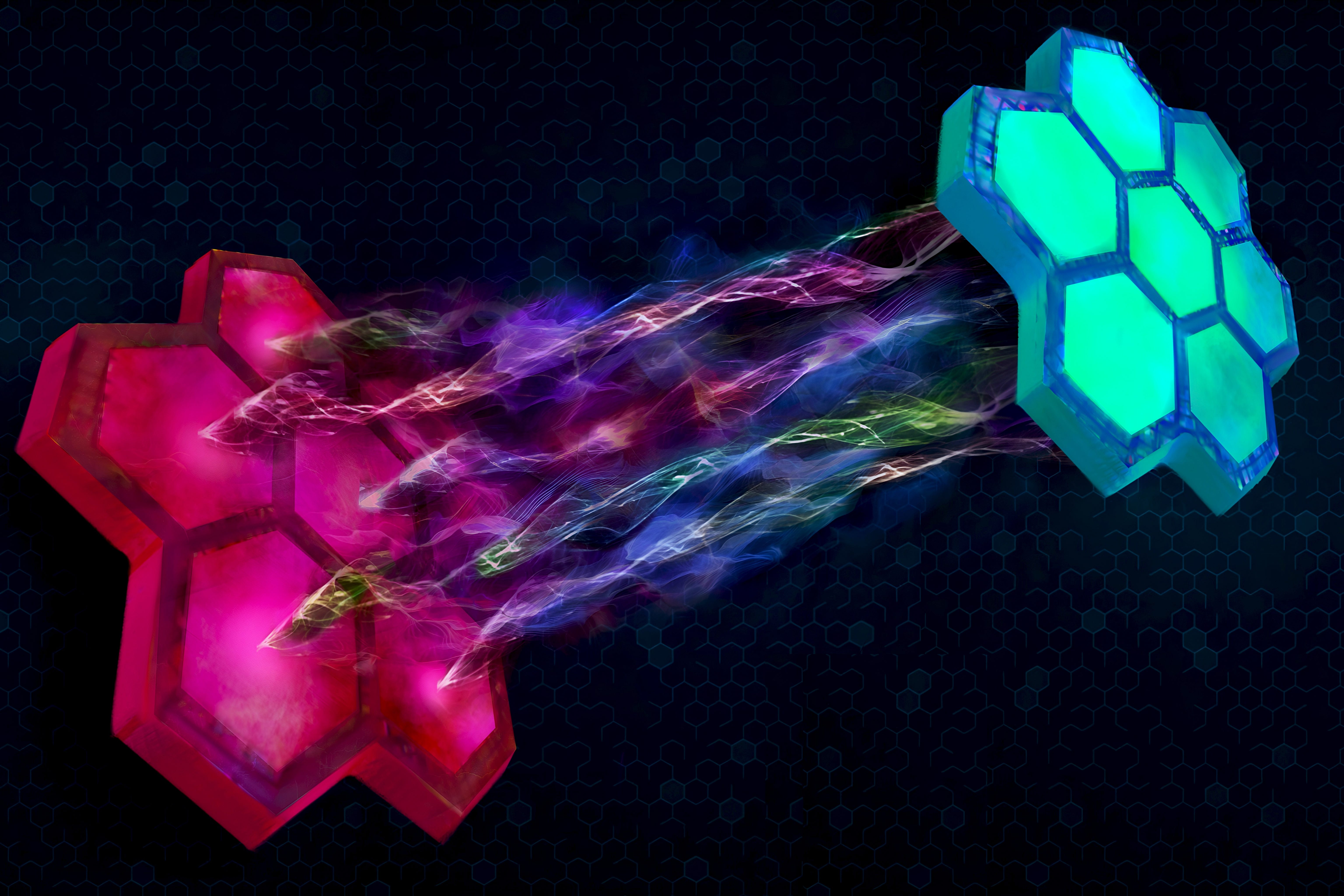Research paves way for communications that cannot be hacked, scientists say
With cyber-attacks becoming more prevelent, quantum entanglement will allow future communications networks to be unhackable, scientits have said.

Your support helps us to tell the story
From reproductive rights to climate change to Big Tech, The Independent is on the ground when the story is developing. Whether it's investigating the financials of Elon Musk's pro-Trump PAC or producing our latest documentary, 'The A Word', which shines a light on the American women fighting for reproductive rights, we know how important it is to parse out the facts from the messaging.
At such a critical moment in US history, we need reporters on the ground. Your donation allows us to keep sending journalists to speak to both sides of the story.
The Independent is trusted by Americans across the entire political spectrum. And unlike many other quality news outlets, we choose not to lock Americans out of our reporting and analysis with paywalls. We believe quality journalism should be available to everyone, paid for by those who can afford it.
Your support makes all the difference.Groundbreaking research into a phenomenon could in future render communications impossible to hack, experts have said.
Scientists at Heriot-Watt University’s Institute of Photonic and Quantum Sciences made the discovery in their study of quantum entanglement.
The phenomenon is when two particles – such as photons of light – remain connected, even when they are separated by vast distances.
Quantum technology involves harnessing the physics of sub-atomic particles to develop ultra-high performance applications, including more powerful computing, more secure communications and more reliable navigation systems.
With cyber-attacks and information leaks becoming more prevalent, quantum entanglement will allow future communications networks to be unhackable, the researchers said, even if devices are unsafe or in criminal hands.
In the future, quantum networks will provide a way to have ultra-secure, high-capacity communication
Problems that can jeopardise security in a quantum network include long distances, where entangled photons can be disrupted by noisy, real-world environments such as stormy weather, background noise, or signal loss in a communications network.
But the new research by Heriot-Watt physicists, who have worked with colleagues at the University of Geneva in Switzerland, shows a new way for quantum entanglement to survive and remain robust under even extreme conditions of noise and loss.
Mehul Malik, an experimental physicist and professor of physics at Heriot-Watt’s School of Engineering and Physical Sciences, said: “Even the best optical fibres in the world will have a certain amount of loss per kilometre, so this is a big hurdle in making this form of quantum communication possible.
“This is the first time it’s been shown that quantum entanglement can tolerate both noise and loss – and still survive in a strong form known as quantum steering.”
Prof Malik, who has been researching quantum technologies for 15 years, and his research team at the Beyond Binary Quantum Information Lab were able to improve the robustness of entanglement by using photons entangled in multiple dimensions, compared to the standard two-dimensional quantum units.
This “high-dimensional” entanglement uses the spatial structure of light to entangle photons in a 53-dimensional space made up of “pixels” of light.
In a test, the researchers were able to steer the entangled photons through loss and noise conditions equivalent to 79km of telecoms fibre optic cable, with 36% of white noise – noise that could come from sunlight leaking into the experiment, for example.
Another finding from the research was that, counter-intuitively, increasing the number of dimensions in quantum entanglement also dramatically reduces the time it takes to measure the results, Prof Malik said.
“The efficient and trusted flow of information lies at the heart of modern society today,” he said.
“In the future, quantum networks will provide a way to have ultra-secure, high-capacity communication.
“To build such a ‘quantum’ internet, we need to be able to send quantum entanglement across real-world distances. And the only way you can do that is by tolerating noise and loss.”
The results of the research are published in the leading scientific journal Physical Review X, a journal of the American Physical Society that aims to publish a select set of potentially landmark papers from all areas of physics.
Prof Malik added: “Quantum technology is very much an emerging area that’s being advanced by both academia and industry, and I think our research is incredibly relevant to both.
“In academia, it can help advance fundamental research, and in industry, it could help future quantum networks operate over global distances.”
This year’s 2022 Nobel Prize in Physics was won for a breakthrough in quantum entanglement by three researchers in France, the US and Austria.